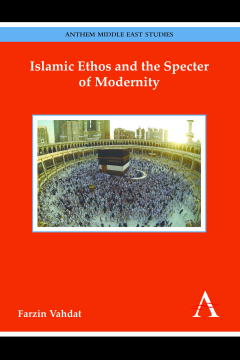
Additional Information
Book Details
Abstract
Drawing on the work of Hegel, this book proposes a framework for understanding modernity in the Muslim world and analyzes the discourse of prominent Muslim thinkers and political leaders. Chapter by chapter, the book undertakes a close textual analysis of the works of Mohammad Iqbal, Abul Ala Maududi , Sayyid Qutb , Fatima Mernissi, Mehdi Haeri Yazdi, Mohammad Mojtaehd Shabestari, Mohammad Khatami, Seyyed Hussein Nasr and Mohamad Arkoun, drawing conclusions about contemporary Islamic thought with reference to some of the most significant markers of modernity.
"The author examines the political views of nine 20th/21st Muslim ideologues; Sir Muhammad Iqbal, SayyidAbul ‘Ala Maududi, Sayyid Qutb, Fatima Mernissi, Mehdi Haeri Yazdi, Mohamad Mojtahed Shabestari, Mohammad Khatami, Seyyed Hossein and Mohammed Arkoun. Each one is the subject of an independent essay but, ... all essays are by the same author. This provides refreshing continuity and eliminates the “curate’s egg” problem when reviewing such a work. On the other hand, it provides the opportunity for the author to insert his own views throughout – which temptation Mr. Vahdat admirably eschews.... this is an extremely informative, well-researched, well-organised and well-presented book. " —The Islamic Quarterly: Vol 60, No. 1-133
Drawing on the work of Hegel, this book proposes a framework for understanding modernity in the Muslim world and analyzes the discourse of prominent Muslim thinkers and political leaders with reference to some of the most significant markers of modernity.
This study closely examines the works of nine major Islamic thinkers in twentieth and twenty-first centuries: Mohammad Iqbal, Abul Ala Maududi , Sayyid Qutb , Fatima Mernissi, Mehdi Haeri Yazdi, Mohammad Mojtaehd Shabestari, Mohammad Khatami, Seyyed Hussein Nasr and Mohamad Arkoun.
By discussing these thinkers, the book traces the genealogy of major strands of consciousness in some crucial parts of the contemporary Islamic world and their relations to significant features of the modernity, such as human and individual subjectivity and agency, freedom, domination, culture of mass democracy, human rights, women’s rights, political activism and participation, economic ethos and views on forms of property ownership, as well as social and cultural pluralism.
“Vahdat introduces a broad range of carefully selected source material for English readers to contribute to current debates in the social sciences, specifically the nature and scope of modernizing change, as well as its intellectual and institutional contributions and impediments. This book will be of interest to those studying these issues at a more specific level in the Muslim world, as well as those who work more generally on theoretical debates in comparative politics and democratization.” —Ali Gheissari, University of San Diego
Farzin Vahdat is a sociologist working on conditions and notions of modernity and their applications to Iran, Islam and the Muslim world. Vahdat has taught at Tufts, Harvard and Yale Universities, as well as Vassar College.
“Vahdat introduces a broad range of carefully selected source material for English readers and contributes to current debates in the social sciences, specifically the nature and scope of modernizing change, as well as its intellectual and institutional contributions and impediments. This book will be of interest to those studying these issues at a more specific level in the Muslim world, as well as those who work more generally on theoretical debates in comparative politics and democratization.” —Ali Gheissari, University of San Diego
Table of Contents
| Section Title | Page | Action | Price |
|---|---|---|---|
| Cover | Cover | ||
| Islamic Ethos and the Specter of Modernity | i | ||
| Contents\r | v | ||
| Acknowledgments | vii | ||
| A Note on Transliteration | viii | ||
| Introduction | ix | ||
| Chapter One Sir Muhammad Iqbal: The Dialectician of Muslim Authenticity | 1 | ||
| Chapter Two Sayyid Abul ‘Ala Maududi: A Theorist of Disciplinary Patriarchal State | 57 | ||
| Chapter Three An Islamic Totality in the Ideology of Sayyid Qutb | 93 | ||
| Chapter Four Fatima Mernissi: Women, Islam, Modernity and Democracy | 115 | ||
| Chapter Five Mehdi Haeri Yazdi and the Discourse of Modernity | 141 | ||
| Chapter Six Postrevolutionary Islamic Modernity in Iran: The Intersubjective Hermeneutics of Mohamad Mojtahed Shabestari | 161 | ||
| Chapter Seven Religious Modernity in Iran: Dilemmas of Islamic Democracy in the Discourse of Mohammad Khatami | 179 | ||
| Chapter Eight Seyyed Hossein Nasr: An Islamic Romantic? | 199 | ||
| Chapter Nine Mohammed Arkoun and the Idea of Liberal Democracy in Muslim Lands | 233 | ||
| Conclusion | 265 | ||
| Bibliography | 273 | ||
| Index | 279 |
